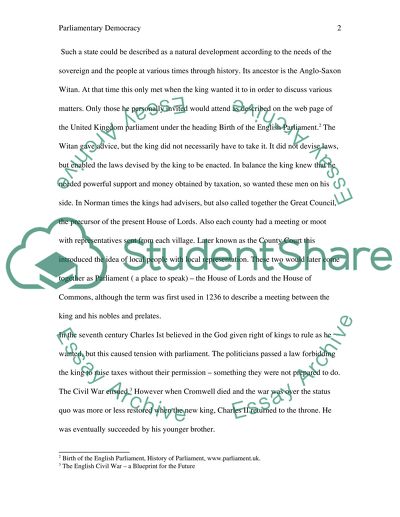Cite this document
(How Important Is Parliamentary Sovereignty in the United Kingdom Coursework, n.d.)
How Important Is Parliamentary Sovereignty in the United Kingdom Coursework. Retrieved from https://studentshare.org/politics/1571233-parliamentary-sovereignty-is-a-principle-of-the-uk-constitution-it-makes-parliament-the-supreme-legal-authority-in-the-uk-which-can-create-or-end-any-law-generally-the-courts-cannot-overrule-its-legislation-and-no-parliament-can-pass-laws-that-future
How Important Is Parliamentary Sovereignty in the United Kingdom Coursework. Retrieved from https://studentshare.org/politics/1571233-parliamentary-sovereignty-is-a-principle-of-the-uk-constitution-it-makes-parliament-the-supreme-legal-authority-in-the-uk-which-can-create-or-end-any-law-generally-the-courts-cannot-overrule-its-legislation-and-no-parliament-can-pass-laws-that-future
(How Important Is Parliamentary Sovereignty in the United Kingdom Coursework)
How Important Is Parliamentary Sovereignty in the United Kingdom Coursework. https://studentshare.org/politics/1571233-parliamentary-sovereignty-is-a-principle-of-the-uk-constitution-it-makes-parliament-the-supreme-legal-authority-in-the-uk-which-can-create-or-end-any-law-generally-the-courts-cannot-overrule-its-legislation-and-no-parliament-can-pass-laws-that-future.
How Important Is Parliamentary Sovereignty in the United Kingdom Coursework. https://studentshare.org/politics/1571233-parliamentary-sovereignty-is-a-principle-of-the-uk-constitution-it-makes-parliament-the-supreme-legal-authority-in-the-uk-which-can-create-or-end-any-law-generally-the-courts-cannot-overrule-its-legislation-and-no-parliament-can-pass-laws-that-future.
“How Important Is Parliamentary Sovereignty in the United Kingdom Coursework”, n.d. https://studentshare.org/politics/1571233-parliamentary-sovereignty-is-a-principle-of-the-uk-constitution-it-makes-parliament-the-supreme-legal-authority-in-the-uk-which-can-create-or-end-any-law-generally-the-courts-cannot-overrule-its-legislation-and-no-parliament-can-pass-laws-that-future.


